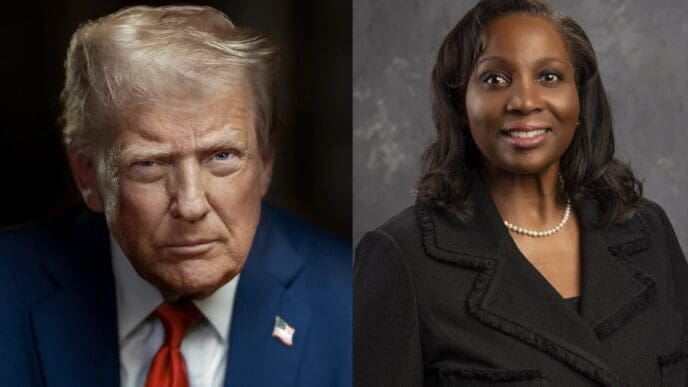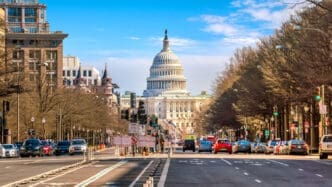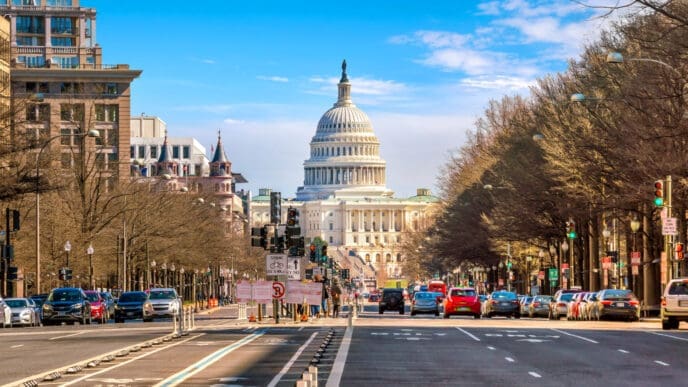President Donald Trump was non-committal when asked by NBC on Sunday about the possibility of seeking a third term. “There are methods which you could do it,” he responded. He further remarked, “A lot of people want me to do it.” However, when speaking to reporters aboard Air Force One, he downplayed the discussion by saying, “I don’t want to talk about a third term right now … No matter how you look at it, we got a long time to go.”
In other news, tariffs on imported automobiles are set to begin on Wednesday, a move that economists predict will lead to increased prices for consumers in the United States. Despite these projections, President Trump expressed confidence that automakers would benefit financially from the tariffs. “The automakers are going to make a lot of money,” he stated, suggesting that the tariffs would incentivize companies to “build in the United States.”
Speaking with reporters on Air Force One before landing in Washington, D.C., on Sunday evening, President Trump reiterated his stance on the auto tariffs, which are scheduled to take effect on April 3. He emphasized that both American and international automakers could gain financially if they choose to manufacture vehicles domestically. “American automakers or international automakers, if you’re talking about them, are going to build in the United States,” Trump asserted. “Outside of the United States, that’s going to be up to them. I don’t care too much about that. But you have a lot of companies coming into the country to manufacture cars,” he added.
The Evolving Landscape
- The discussion of a potential third term raises questions about political stability and constitutional norms in the United States, potentially influencing future election dynamics.
- Increased tariffs on imported vehicles may lead to higher costs for consumers, impacting their purchasing decisions and overall affordability of cars.
- Encouragement for more domestic manufacturing could lead to job creation in the automotive sector, potentially boosting local economies.
- American consumers might face a limited selection of imported vehicles, altering market competition and brand availability.
- International automakers may reconsider their manufacturing strategies, affecting global trade relations and investments.
- The tariffs could prompt discussions on trade policies and their long-term impacts on economic growth and international partnerships.













